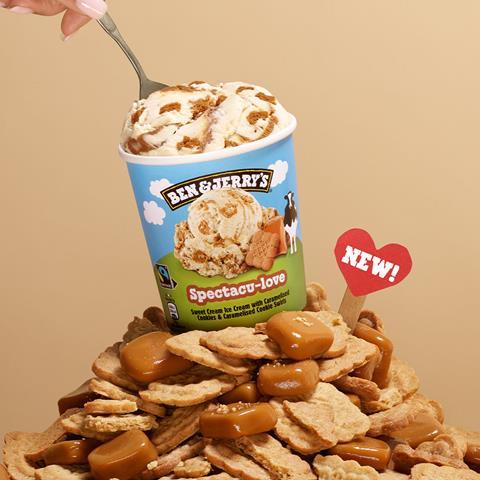
Top story
Unilever has unveiled plans to split off its ice cream business and also separately identified €800m in cost savings in a move that will impact about 7,500 jobs.
The group said separating the ice cream operations as a standalone business and the productivity programme were steps that would accelerate the ‘growth action plan’ (GAP) announced by new boss Hein Schumacher last year.
A demerger is the most likely way Unilever will separate the ice cream business, which contains the likes of Magnum, Ben & Jerry’s and Wall’s and generated €7.9bn in turnover in 2023.
However, Unilever added that other options for separation would be considered to maximise returns for shareholders.
Unilever said a standalone business would be more focused and its management team would have “operational and financial flexibility to grow”.
Going forward, Unilever will operate four business groups across beauty & wellbeing, personal care, home care and nutrition.
The separation will begin immediately and is expected to be finished by the end of 2025.
Alongside plans for ice cream, Unilever added it had identified additional efficiencies that could be accelerated as it builds on early momentum of the growth plan.
The cost-cutting programme is expected to save about €800m over the next three years, which the group said would more than offset lost synergies of splitting off ice cream.
The proposed changes will affect about 7,500 predominantly office-based roles globally, with total restructuring costs now expected to be around 1.2% of group turnover for the next three years.
“Under the ‘Growth Action Plan’ we have committed to do fewer things, better, and with greater impact,” Schumacher said.
“The changes we are announcing today will help us accelerate that plan, focusing our business and our resources on global or scalable brands where we can apply our leading innovation, technology and go-to-market capabilities across complementary operating models.
“Simplifying our portfolio and driving greater productivity will allow us to further unlock the potential of this business, supporting our ambition to position Unilever as a world-leading consumer goods company delivering strong, sustainable growth and enhanced profitability.
“We are committed to carrying out our productivity programme in consultation with employee representatives, and with respect and care for those of our people who are impacted.”
Chairman Ian Meakins added: “The board is determined to transform Unilever into a higher-growth, higher-margin business that will deliver consistently for all stakeholders. Improving our performance and sharpening our portfolio are key to delivering the improved results we believe Unilever can achieve.
“The separation of ice cream and the delivery of the productivity programme will help create a simpler, more focused, and higher performing Unilever. It will also create a world-leading ice cream business, with strong growth prospects and an exciting future as a standalone business.”
Shares in the group jumped by 4.3% to 3,974.5p this morning in reaction to the news.
Morning update
Diageo has appointed John Manzoni as its new chairman.
The former chief executive of the UK civil service is currently a non-executive director at the drinks giant.
He will take over as chairman in February 2025 when Javier Ferrán retires.
“It will be a privilege to take on this role and to succeed Javier, whose leadership and acumen have been so valuable to our business and to board colleagues,” Manzoni said.
Grocery tech provider Eagle Eye has boosted revenues and profits in the six months ended 31 December 2023 as it continued to win new contracts in the UK and in North America.
Revenues increased 20% to £24.1m and adjusted EBITDA is up 25% to £5.9m, with adjusted pre-tax profit 49% higher at £2.6m.
CEO Tim Mason said the group had laid out ambitions to be a much bigger business.
“These results demonstrate we are progressing on that journey,” he added.
“With a considerable and growing pipeline, we remain confident in our ability to deliver on our ambitions.”
Indonesian palm oil producer MP Evans has reported a fall in revenues and profits as commodities prices came down from the exceptional highs seen in 2022.
Revenues in 2023 fell 6% to $307.4m as the average mill-gate price for crude palm oil dropped from $854 a tonne to $729.
Operating profits also declined from $101.6m in 2022 to $75.3m last year.
However, MP Evans increased the total crops processed in 2023 by 7% to 1.6 million tonnes.
Chairman Peter Hadsley-Chaplin said: “The group has made further significant progress in delivering its strategy in 2023.”
Dividend for the year came in at 45p a shares, up from 42.5p in 2022.
The FTSE 100 has opened flat at 7,721.13pts.
Diageo fell 0.8% to 2,844.4p, while Eagle is down 0.4% to 567.7p and MP Evans is 0.5% lower at 746p.
Early risers alongside Unilever include Deliveroo, up 2.6% to 117p, Glanbia, up 1.1% to €18.10, British American Tobacco, up 1% to 2,423.5p, and Bakkavor, up 1% to 105.5p.
Naked Wines is down a further 4.1% to 54.9p, with Reckitt Benckiser 3.6% lower at 4,412p.
Yesterday in the City
The FTSE 100 closed down 0.1% to 7,722.55pts yesterday.
Shares in Naked Wines slumped 8.9% to 56.5p as media reports that it had hired Interpath Advisory to refinance its debt spooked the markets.
Soft drinks group Nichols was also among the fallers, down 4.7% to 1,020p.
Risers included Glanbia, PZ Cussons and British American Tobacco, up 5.1% to €17.87, 3.5% to 89.2p and 2.5% to 2,399p respectively.







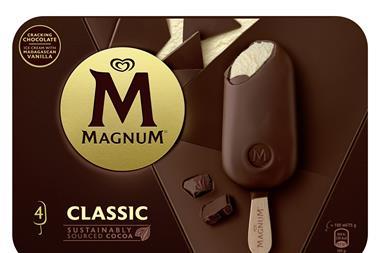
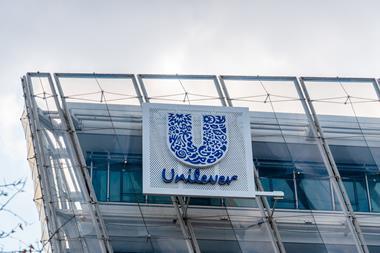

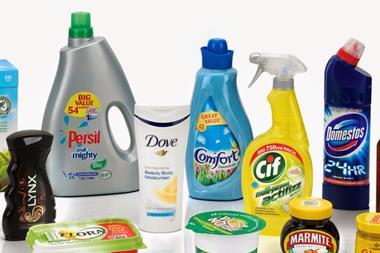
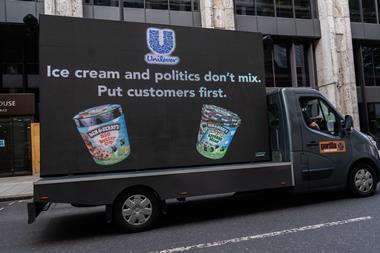
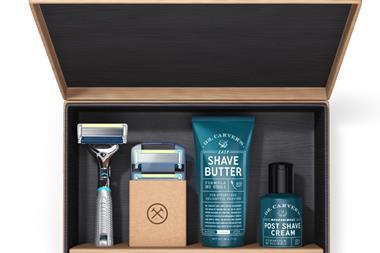






No comments yet